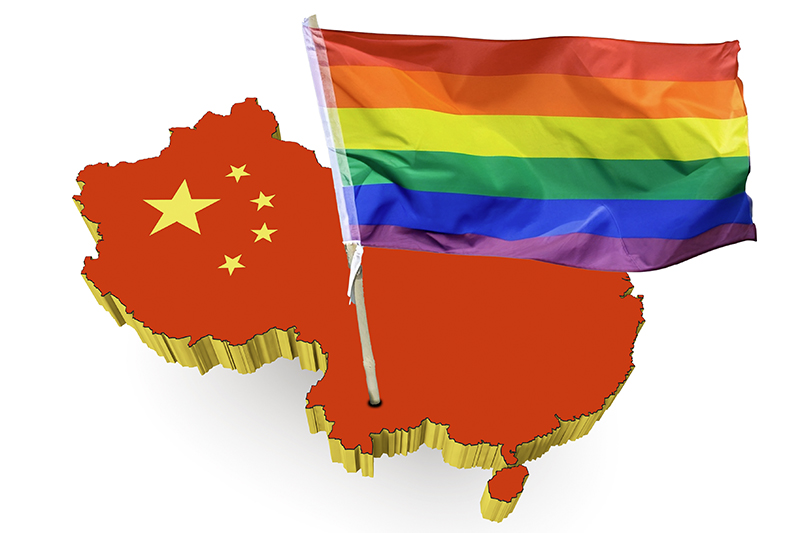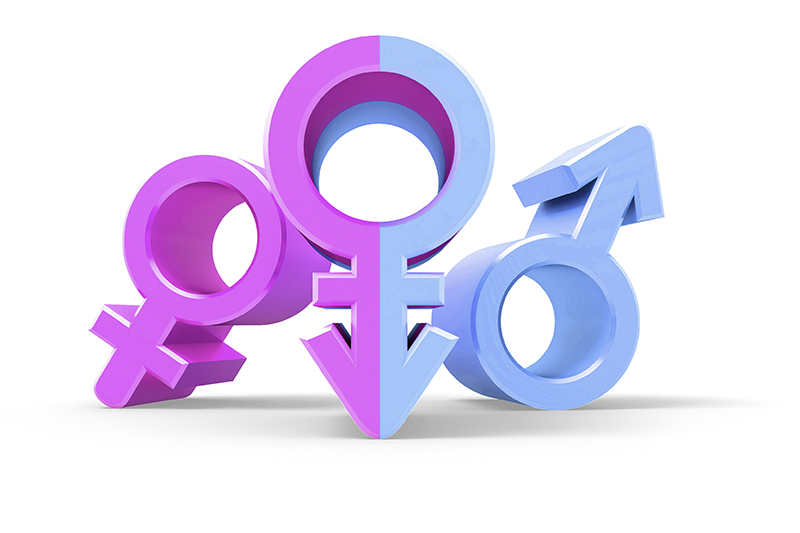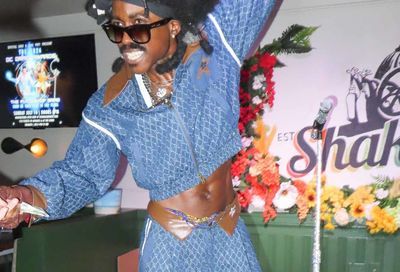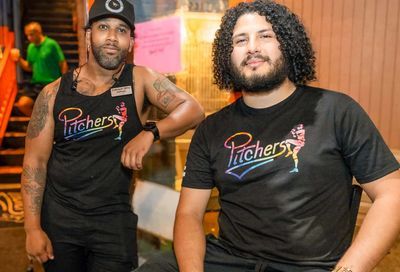Supreme Court takes up anti-gay website designer’s case
Lorie Smith says she should be granted a religious exemption that allows her to refuse to create websites for same-sex weddings.

On Tuesday, the U.S. Supreme Court decided to hear a case brought by a Colorado website designer who is seeking an exemption that would allow her to refuse to provide services to same-sex couples getting married.
The designer, Lorie Smith, the owner of 303 Creative, claims that being forced to provide wedding-related website services for same-sex couples would violate her religious beliefs opposing homosexuality.
Enlisting the help of the anti-LGBTQ legal group Alliance Defending Freedom, Smith sued Colorado in 2016, demanding an exemption from the state’s civil rights law, which prohibits businesses that open themselves up to the public from discriminating against people based on sexual orientation.
As other ADF legal clients have asserted in past cases, Smith claims she will do some work for LGBTQ clients, but cannot create custom-made wedding websites.
She further claims that the products she creates are a form of “artistic expression” that should be protected under the First Amendment, and therefore, she should be exempt from having to abide by Colorado’s Anti-Discrimination Act.
Smith’s lawsuit was dismissed in May 2019, on the grounds that she had filed suit before the state had taken any action against her — or before she had even been asked to create a website for a same-sex couple — and thus, had no grounds to sue.
A federal district judge ruled against her in September 2019, finding that her proposal to post a statement outlining her objection to promoting same-sex weddings “proposes an unlawful act” because it proposes to illegally deny services to same-sex couples on the basis of their sexual orientation. Smith then appealed the decision to the 10th U.S. Circuit Court of Appeals.
In July 2021, the appeals court ruled 2-1 that businesses that open themselves up to the public must provide services for same-sex marriages if they offer the same services for opposite-sex weddings.
The majority found that the Accommodation Clause of the Colorado Anti-Discrimination Act was “narrowly tailored” to the state’s interest in ensuring “equal access to publicly available goods and services.”
“Excepting Appellants from the Accommodation Clause would necessarily relegate LGBT consumers to an inferior market because Appellants’ unique services are, by definition, unavailable elsewhere,” Senior Judge Mary Beck Briscoe wrote, rebuffing claims made by Smith’s lawyers that LGBTQ individuals should simply seek out similar services elsewhere.
“To be sure, LGBT consumers may be able to obtain wedding-website design services from other businesses; yet, LGBT consumers will never be able to obtain wedding-related services of the same quality and nature as those that Appellants offer. Thus, there are no less intrusive means of providing equal access to those types of services.”
Smith’s lawyers appealed to the nation’s highest court asking it to take up the case.
In a brief order, the Supreme Court said it would take up the case to consider “whether applying a public-accommodation law to compel an artist to speak or stay silent violates the Free Speech Clause of the First Amendment, reports NBC News. The court’s next term begins in October.
Smith’s lawyers have argued that Colorado’s law “compels speech based on viewpoint, and creates a pro-LGBT gerrymander by requiring religious artists to celebrate same-sex marriage while allowing other artists to decline messages like ‘God is dead.'”
The state of Colorado, in asking the court not to take up the case, argued that no burden has been placed on Smith and that the state has taken no action against her. Rather, lawyers for the state argued, the law is a straightforward regulation of a commercial service that applies equally to all businesses, regardless of the personal religious beliefs of their owners.
“The record contains no evidence that anyone has asked the company to create a website for a same-sex wedding, that Colorado has threatened enforcement, or that any future wedding website would convey a message that would be attributed to the company,” the state argued in its legal filings.
They noted that even if a business were to offer a service with an expressive element, a reasonable person would assume the message expresses the views of the customers who purchased the service, not the business that created or provided it.
A similar case in New York involving a photographer who does not want to be compelled to photograph same-sex weddings was dismissed by the courts earlier this year.
Alliance Defending Freedom, which is representing the client in that case as well, has pushed for the Supreme Court to take up the Colorado case, in the hope that a decision carving out religious exemptions for Smith will provide a path forward for others who wish to deny services to LGBTQ individuals or same-sex couples.
By taking up Smith’s lawsuit, the high court will have to weigh in decisively on the issue of whether certain businesses with religious objections can refuse to offer services for same-sex weddings — a question it ducked in the Masterpiece Cakeshop case, when the court decided that the Colorado Civil Rights Commission had not taken seriously the concerns of Jack Phillips, a “Christian” baker who wanted to refuse to provide a cake for a same-sex wedding.
In that 7-2 decision, the court sided with Phillips, but did not elaborate on the type and scope of exemptions — if any — that could or should be provided to business owners with so-called “sincerely-held religious beliefs” opposing same-sex marriage.
The court has also previously ducked the issue of whether wedding-related services, such as cake-baking or flower-arranging, are inherently forms of “artistic expression,” or simply a service or product made available (at least hypothetically, although not in practice) to the general public.
Support Metro Weekly’s Journalism
These are challenging times for news organizations. And yet it’s crucial we stay active and provide vital resources and information to both our local readers and the world. So won’t you please take a moment and consider supporting Metro Weekly with a membership? For as little as $5 a month, you can help ensure Metro Weekly magazine and MetroWeekly.com remain free, viable resources as we provide the best, most diverse, culturally-resonant LGBTQ coverage in both the D.C. region and around the world. Memberships come with exclusive perks and discounts, your own personal digital delivery of each week’s magazine (and an archive), access to our Member's Lounge when it launches this fall, and exclusive members-only items like Metro Weekly Membership Mugs and Tote Bags! Check out all our membership levels here and please join us today!



























You must be logged in to post a comment.